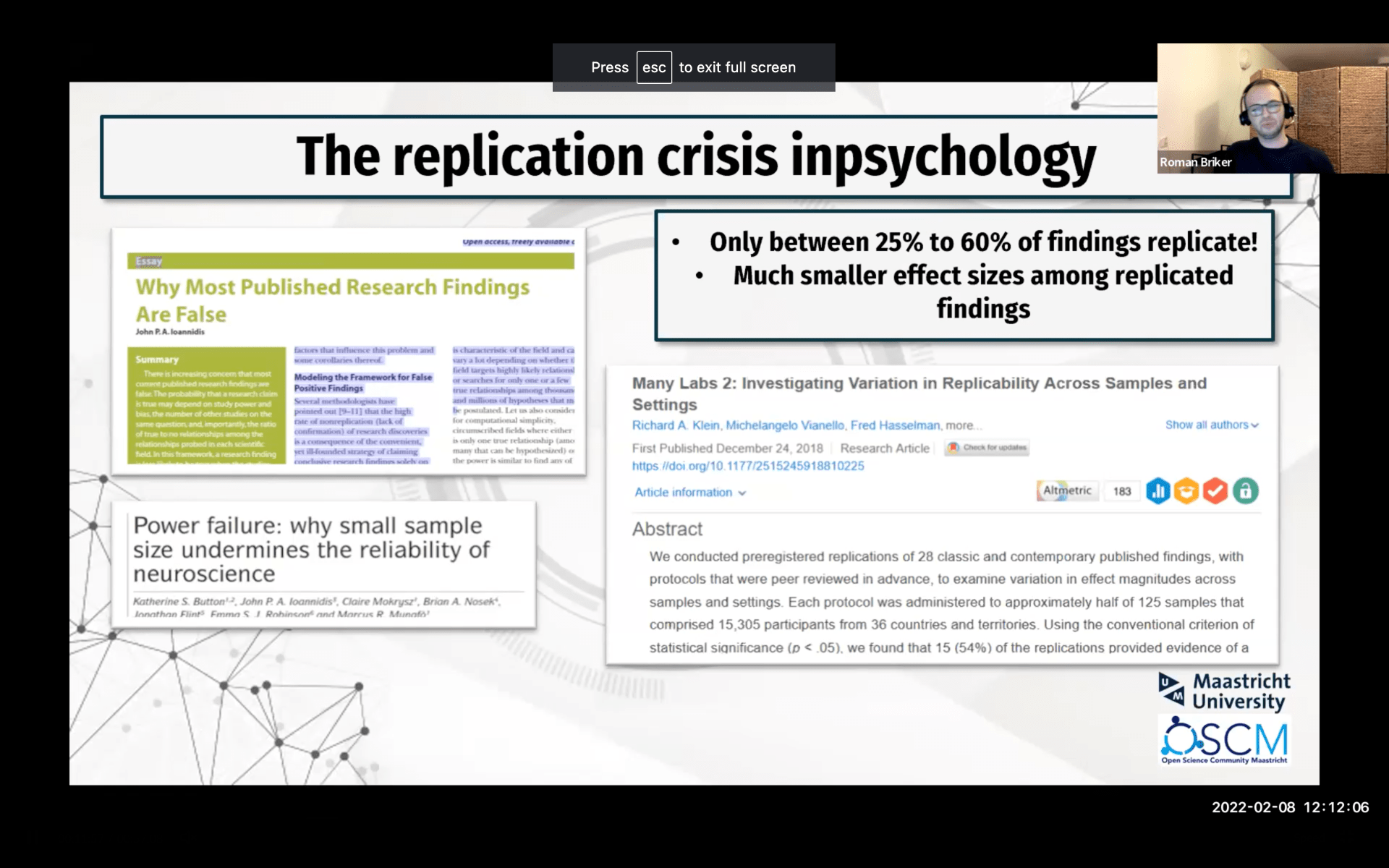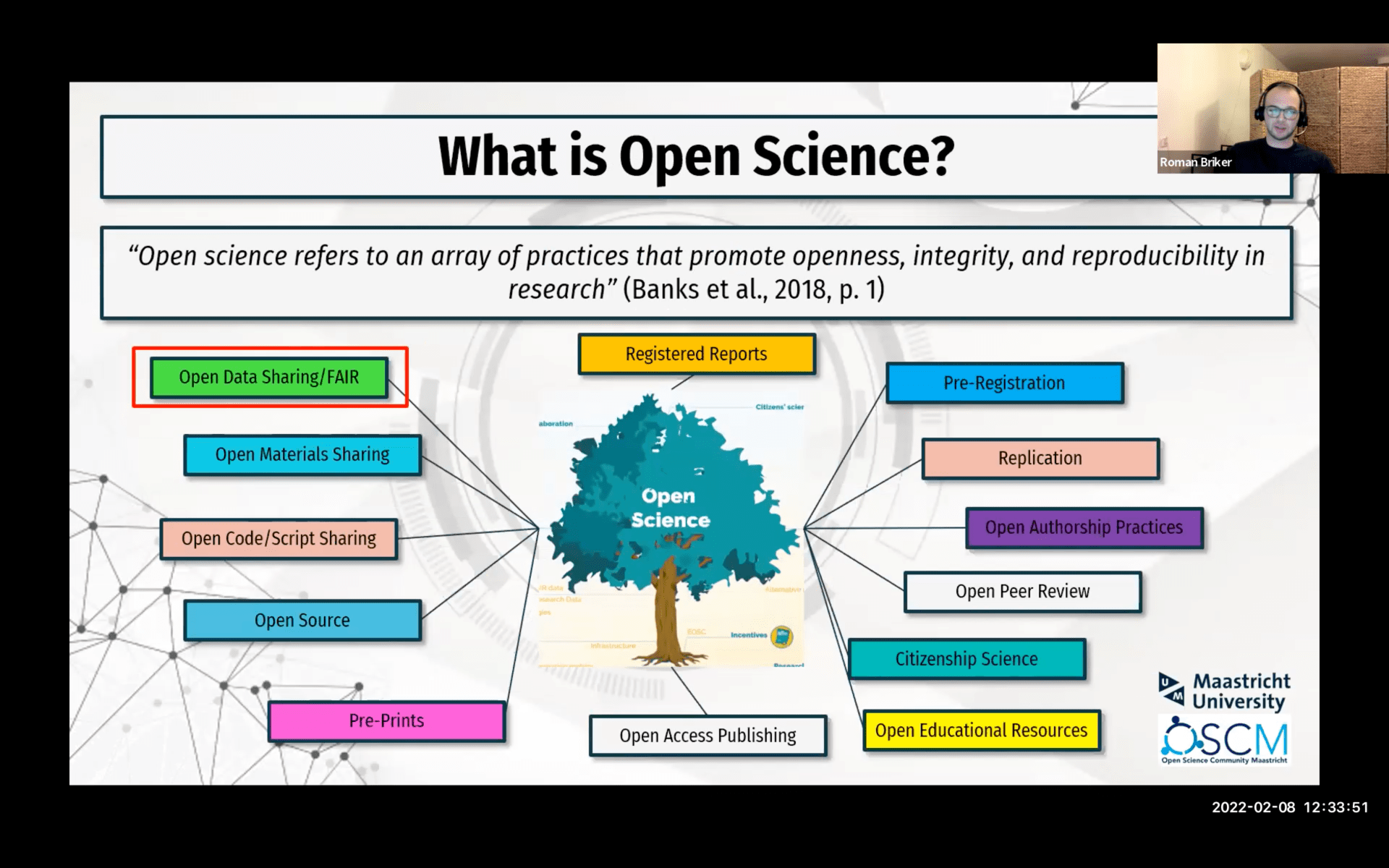On February 8, 2022, amid the lingering COVID-19 pandemic, the Berger Institute invited Dr. Roman Briker to give an Open Science Zoom talk to members of the Claremont community. Dr. Briker is an Assistant Professor in Organizational Behavior & Human Resource Management at Maastricht University in the Netherlands. Roman’s research interests are interactions between humans and AI and social and organizational hierarchies.
In this talk, Dr. Briker discussed the reasons for the emergence and processes of the replication crisis of the early 2010s. He also stressed the importance of understanding open science and how it can be implemented in the scientific community and society.
The replication crisis occurs when researchers cannot replicate or obtain similar results to the original, peer-reviewed study when repeating that study using the same methods and population. In the early 2010s, prominent researchers admitted to faking their data, and large-scale research projects revealed that most findings in psychological studies could not be replicated. At the peak of replication, Diederik Stapel falsified data on Microsoft Excel in his garage and published 59 journals and papers: they were all based on fabricated data. Given that the relevance and utility of science critically hinges on the trustworthiness of its findings, these developments constitute a huge burden for scientists and stakeholders wanting to apply scientific knowledge.
To combat this problem, Dr. Briker introduces Open Science, which refers to an array of practices that promote openness, integrity, and reproducibility in research. The key elements of Open Science include public preregistration of the study before collecting data, replication of trials, uploading data to the public, and more. Because it is a more transparent and honest approach to publishing research, open science becomes a solution to reduce the problems of the replication crisis and simultaneously increases the quality and success of the findings.
Attendees asked provoking questions in the Q&A afterwards and expressed gratitude for the opportunity to hear aboutDr. Briker’s expertise.
“Science shouldn’t be a good story. Science should be about the truth.” – Dr. Roman Briker.
Follow @bergerinstitute on Facebook and Instagram for future updates on events!


